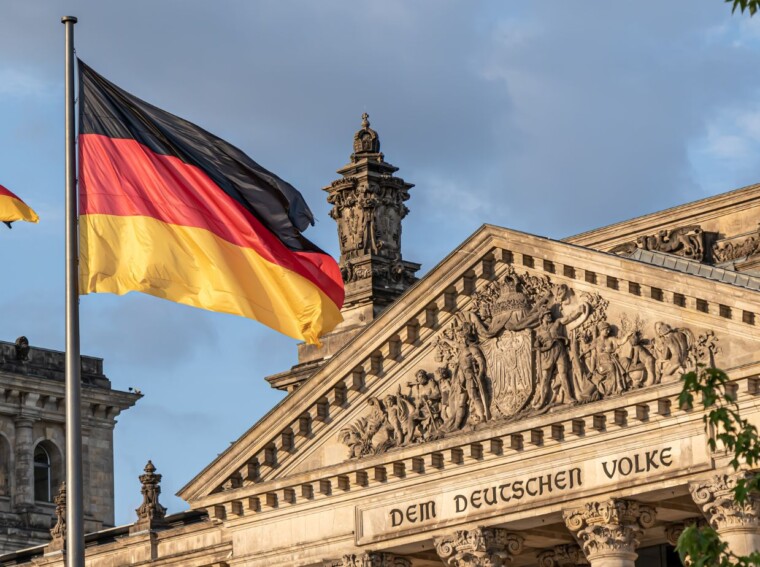The quest for “quick wins” – gaining consequential outcomes through fairly quick and effective efforts – is a strategy adopted in many sectors throughout Germany. From the cutthroat business world, often-scrutinized politics, or the fast-paced sports world, everyone seeks tangible advancements and rapid success. To comprehend “Quickwin Germany” means to look at its utilization and background within these various fields.
Quick Wins in the German Business Environment
Within the context of German business, where precision and long-term planning dominate, the idea of quick wins may appear illogical. Nevertheless, generating fast, noticeable improvement can be extremely beneficial. For small and medium-sized businesses (SMEs), the cornerstone of the German economy, quick wins can be the key to vital early momentum and financial security. This could include:
Process Optimization:
Streamlining current processes to eliminate waste and enhance efficiency. For instance, a manufacturing firm may adopt a new inventory management system to rapidly decrease storage expenses.
Targeted Marketing:
Leveraging low-cost, high-impact marketing techniques to rapidly acquire new customers. A neighborhood restaurant may employ social media promotions to rapidly increase evening reservations.
Sales Focus:
Focusing on easily attainable sales goals or upselling opportunities to create immediate revenue. A software firm may provide existing customers with a price-discounted upgrade to an enhanced version to build quick sales.
Digitalization:
Using basic digital tools to enhance communication or straightforward operations. A small shop may introduce a digital payment facility for speedy transactions.

For big German companies, quick wins can be pilot projects that pilot new strategies prior to more extensive implementation, boost team spirit by showing initial success, or solve particular immediate problems. Consultancy firms doing business in Germany tend to promote their capacity for achieving “quick wins” such as cost reduction or process enhancement for their customers.
Political Quick Wins in the German Context
In German politics, “quick wins” are policy measures or steps taken to yield short-term, concrete gains for the voters. They can be important in establishing public confidence and showing effective governance, particularly in the context of complicated long-term issues. Some examples could be:
- Bureaucracy Reduction: Making administrative procedures simpler for citizens or companies, e.g., streamlining permit requests.
- Local Infrastructure Upgrades: Executing small-scale initiatives with quick, tangible effects, such as fixing a busy road or renovating a neighborhood park.
- Public Awareness Campaigns: Executing targeted campaigns on urgent social concerns to induce a quick change in public opinion or attitude.
- Short-Term Fiscal Relief: Executing stopgap measures such as tax relief or subsidies to particular groups.
Yet, the quest for quick wins in German politics is commonly weighed against the imperative for systematic, long-term solutions. Detractors might suggest that considering only short-term gains can result in overlooking deeper issues or arriving at cosmetic solutions. The politics of Germany today, characterized by coalition dynamics and the emergence of new political actors, requires a nuanced weighing of both short-term effects and long-term viability in policymaking.
Quick Wins in German Sports
German sports, ranging from the world-leading football leagues to their success at winter sports and handball, also experience the use of “quick win” tactics. Here, it mostly means strategic plays or psychological strategies to gain an immediate lead in competition:
- Tactical Shifts: A coach could make a quick interchange or change of formation to take advantage of a current weakness in the opponent’s defense.
- Set-Piece Tactics: Organizing well-practiced moves during set pieces in football or handball to score a rapid goal.
- Taking Advantage of Opponent Mistakes: Taking immediate advantage of a blunder on the part of the other team in any sport to score a point or scoring chance.
- Psychological Strategies: Employing tactics to intimidate foes or stimulate team motivation during a game for a short-term psychological advantage.

Germany also boasts a long tradition of tactical and strategic competence across different sports, and the capability to recognize and realize quick wins within the momentum of a game is characteristic of great German teams and athletes. As an example, the German national football team has repeatedly been praised for its effectiveness in taking advantage of scoring opportunities.
The Nuances of “Quickwin Germany”
While the chase for quick wins can have good effects in these areas, it’s important to consider possible downsides. Focusing too much on short-term gain without having a strong long-term plan may result in unsustainable success. In business, it could translate to forgetting important long-term investments; in politics, it may lead to cosmetic policy reforms; and in sports, focusing only on short-term benefits could sacrifice overall growth and stamina.
In addition, what constitutes a “quick win” and its feasibility also differs considerably based on the particular context and the general cultural values in Germany, which tend to emphasize thoroughness and longevity.
Final Thoughts
Finally, “Quickwin Germany” represents the strategic quest for quick and effective results in the German environment. Although the particular uses vary between business, politics, and sports, the essential idea of accomplishing tangible gains with optimal effort is the same. Yet, lasting success in Germany, where careful planning and diligence are valued, tends to mean weaving such quick wins into a larger strategic context.
